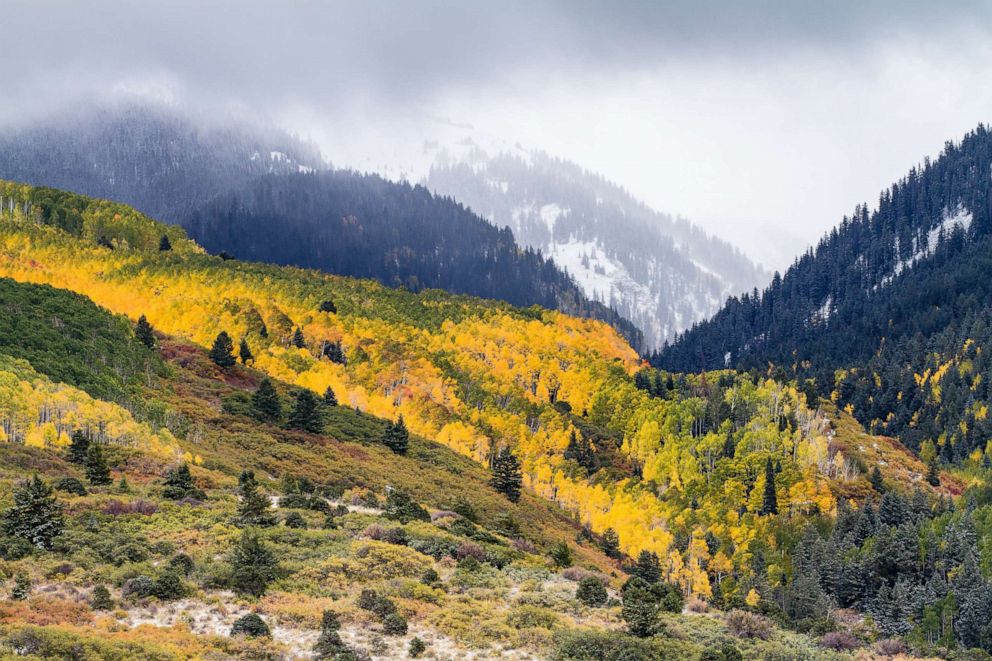Biden to sign executive order protecting old-growth forests on federal lands
But first, the government must decide what it considers "old-growth."
President Joe Biden will sign an executive order Friday calling to protect old-growth forests on federal lands, strengthen reforestation initiatives and global partnerships to end deforestation, and take more steps to protect critical forests from wildfires.
Under the order, the Interior Department and the Department of Agriculture will conduct the first inventory of old-growth trees on federal lands and use that information to develop new policies to protect critical forests. Federal agencies will be asked to set reforestation targets for 2030.
The order will also call for the strengthening of partnerships with states, tribes, private landowners and other stakeholders to protect forests from wildfires, including by requesting $6.1 billion for wildfire risk reduction in the president’s 2023 budget.

"We're talking about additional steps and the administration's plan to conserve, restore and replant our federal forests with a particular focus on on some of the crown jewels of these federal lands, stands of old-growth trees," a senior administration official told reporters Thursday night. "These old-growth forests are significant carbon sinks, yet many of them are under really tremendous threat from climate driven droughts and wildfires."
Another senior administration official added, "America's forests are among our most important climate solutions. They absorb more than 10% of U.S. annual greenhouse gas emissions, while providing a plethora of additional benefits for wildlife flood control and clean water, clean air."
Good Morning America will have more Friday morning with National Geographic and the importance of protecting endangered trees.
The first step, however, will be to decide what is considered "old-growth," because there is no official definition of which trees or forests fit this category.
Old-growth forests are considered especially important to protect, because older trees and more diverse ecosystems have the potential to capture carbon in the soil and plants. Protecting them from deforestation has been a big international priority with 137 countries pledging at COP26 to end forest loss by 2030.
When asked about how these initiatives would deal with the impact of logging on taking down old trees, a senior administration official said the president is taking "the exact right approach" to define and track down these old-growth trees and then use that information and science to determine the best path forward.
But some organizations, such as Food and Water Watch, have indicated that Biden’s action on forests is not nearly enough. Climate activists are expected to protest outside Biden’s event in Seattle on Friday.
"President Biden seems to think we’re celebrating the first Earth Day in 1970, rather than in depths of the climate crisis in 2022," Thomas Meyer, the national organizing manager of Food and Water Watch, said in a statement. "Protecting forests without addressing the root cause of the climate crisis, namely the continued extraction and burning of fossil fuels, will do very little to slow global warming."
"The president has many effective tools at his disposal to address the climate and public health impacts of fossil fuels in a serious way," Meyer added. "He should start by following through on his pledge to end fracking on public lands and stop offshore drilling, and directing his agencies to reject all new fossil fuel infrastructure."




